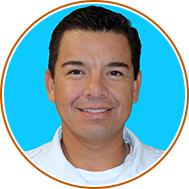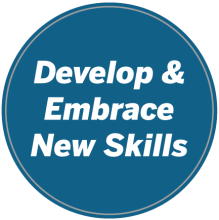Jim Moreno, Facility Supervisor, Marine Science Institute

1. Describe your role for UT.
My role with the University of Texas Marine Science Institute is to promote a safe and secure environment which is improving our security systems throughout the campus. I oversee a crew of seven safety officers who report daily on patrols and events seven days a week. I developed new template reports making sure that all safety officials communicate clearly on daily operation. I create and update practice and procedures for daily operation to service guest reservations. My role also expands into facilities with designated technical duties that outline security systems, equipment repair, and fire protection devices. I function on behalf of the Director of MSI and the administration department on any related issues or incidents on campus. Furthermore, I coordinate with all local officials, including UT Austin PD, for any official assistance needed.
2. What was the most important lesson you learned as a new manager?
Becoming a new supervisor with MSI, I learned a new direction with communication. This lesson was an essential task for me as a leader, as I had to update the team on everyday events. In addition, I organized and created new templates for security reports for the team that follow individual briefings. I also made them available individually one-on-one with a scheduled meeting for questions or concerns about the department. Every department struggles sometimes, but as a leader, you manage the lesson by updating yourself and asking your direct HR representative questions. UT- Austin does offer an array of learning tools for leadership that can assist. Strengthening communication builds a strong relationship by keeping the balance within the organization. Keeping the lines opened for communication should always be ongoing and include updates on changes to security procedures and reminders about the importance of following security protocols. Secure communication also builds trust with clients and partners, enhancing the organization’s reputation.
3. What advice do you have for managers to help develop their team?
The best advice that I can keep giving would be communication. If staff members understand related information provided during a meeting or individually, they can work together more efficiently. One of the main goals of a manager is to inform your team about concerns to make room for improvement. Even during performance evaluation, remind the staff members that you’ve noticed some issues with their communication skills. Based on your teamwork, create a communication strategy to keep everyone engaged. When in groups of two, it’s always helpful to assign a delegated duty that indicates who is responsible for action. You set the example, be engaged with questions, and explain decisions. Emails are also another tool for communication on campus; It’s one of my common goals to improve. While emails shouldn’t be a first resort for conversation, they are helpful when notifying or summarizing team members about events. Emails can also be resourceful when there happens to be a last-minute situation at hand and another source of contact for a member is needed. Lastly, it is necessary to pay attention to your workers. You want to make sure staff are being heard and acknowledged by asking questions to summarize the conversation and ensure you fully understand what they’re trying to convey. It’s building that trust once again.

4. Why is learning in the workplace important?
Learning from the workplace enhances career development as improving job performance improves task skills and day to day operations. Staff members learn great lessons in the workplace from their job experience, and learning at work helps those who are efficient with production become better problem solvers. Learning a new practice and viewing the positive impact could be rewarding. As I continue to learn from my workplace, I develop new skills for my security team to improve performance. I always embrace new skills developed while on duty or working with administrative staff. Collaborating with staff helps everyone become better problem solvers working together on ideas. With better training, staff members will feel better at what they’re doing. Feeling knowledgeable can make a staff member more comfortable taking the lead independently, as a team player, without the help or supervision from others. Learning will bring better quality to the role.
5. What have you recently learned, what are you currently learning about, or how are you developing yourself as a professional?
I am currently in a Franklin Covey learning – roles of leadership which offered a 360 diagnostic that summarized feedback to understand my strength and weakness for improvement. I found this interesting but challenging as we learned about inspired trust that follows leadership roles for a meaningful workplace and becoming a valued member for a winning team. The course has influenced how I, as a supervisor, apply my learning skills while on duty as a leader, as I mentioned before, to communicate better. During a session, the course instructor spoke of inspired trust- cores of credibility. I need a plan with clear objectives and supporting initiatives as a leader. As a leader I must build credibility and trust to branch out. Consistent behavior and encouraging a good relationship with staff will increase confidence and validate personal value. With practice, I increase my capabilities with constant learning. Act upon feedback from staff, providing updates and thanking them. Leaders can create a trustworthy relationship by being open and honest and always welcoming skills to improve for tomorrow’s tasks.
UT L&D Manager Spotlight
Contact
For questions about or requests for services, contact L&D through our brief intake form.